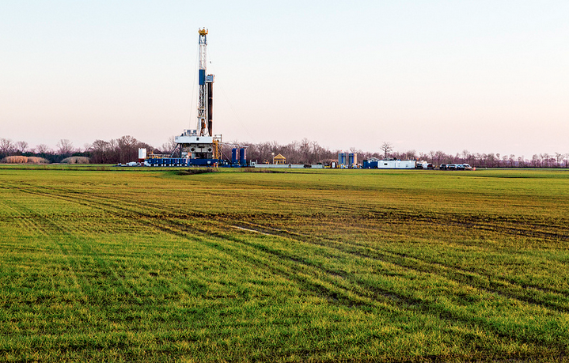
Energy’s Global Leverage: The U.S.’s New Paradigm
Increasing American energy production, coupled with resources disputes such as we are seeing between Ukraine and Russia, shows the importance of American involvement in global energy markets and our national security. A recent event hosted by the Foreign Policy Initiative (FPA) and Securing America’s Future Energy (SAFE) shed light on the current status and shifting focus of U.S. energy, global markets, and national security.
Representative Cory Gardener of Colorado opened the event with comments on the status of his state’s energy sector. He highlighted both natural gas development and Colorado’s “all of the above” energy strategy, which have created 120,000 jobs for the state. He believes passage of H.R. 6, the Domestic Prosperity and Global Freedom Act, a bill he introduced in March that would direct the Department of Energy to authorize the international export of liquefied natural gas (LNG) from domestic facilities, is important for U.S. national security. Not only would passage of the bill allow us to help vulnerable allies, such as Ukraine, but would grow our energy sector, jobs market, and economy. The bill has passed the House but has yet to move through the Senate. The Department of Energy’s recent reform of LNG licensing may make this bill unnecessary.
Representative Gene Green of Texas was vocal about the importance of natural gas for U.S. economic and national security reasons. The district he represents, including the urban Houston-area, has seen the benefits of a growing energy sector on the local economy and is excited by LNG export discussions that have arisen because of increasing production rates. He believes that the U.S. no longer needs to safeguard our energy supplies; we have more natural gas than we can consume and will soon become one of the world’s largest oil producers.
Admiral Mike Mullen, U.S. Navy (Ret.), provided guidance on military involvement in unstable regions and its ultimate impacts on global energy markets. He was explicit about U.S. connections to the Middle East as tied to our energy interests, though admitted that the military has little strategy in this area. Although our increasing energy abundance may allow us more leverage throughout the region, we still have trouble navigating regions that are unstable, such as corrupt Libya and Nigeria, and those which may become more unstable, such as Iraq.
What remains unclear is whether or not energy can or should be used by the U.S. as a policy tool, bringing our allies closer, or even as a weapon, in order to counter countries, such as Russia, from creating energy uncertainties throughout Europe and the rest of the world.
Iraq, which currently produced more than 3 million barrels of oil per day, and is expected to produce 8 million per day by 2035 if they continue to expand current energy infrastructure, is under strife as the extremist ISIS group moves in. Capture of the city of Mosul created a slight price spike in early July, and a civil war has the potential to create extreme barrel price spikes that could impact U.S. GDP by 1%.
John Hannah of the Foundation for Defense of Democracies, previously Vice President Dick Cheney’s national security advisor and State Department official, was careful in calling energy a weapon, though he did acknowledge that previous Iranian sanctions, in which we used our domestic energy sources rather than those from Iran, and remained stable, may have been viewed as using energy as a weapon. These same actions have been used by Russia, and continue to be so, as they manipulate oil prices for policy advantages. It is clear that there is a fine line between using energy as diplomacy or weaponry.
While it may make sense to diversify the global energy market by including U.S. oil, Hannah cautions against following in Australian footsteps, who have overcommitted themselves to Japanese and Chinese energy demands. Mullen believes that the U.S. must ensure that it is “the indispensable nation,” by sending a signal to our allies that we have the energy supplies to counter energy-aggressive nations, be competitive, and uphold American values.
Increasing energy independence will not detach America from global market fluctuations; it will, however, provide the U.S. with greater global policy leverage. Whether we will use this leverage through diplomacy or as a weapon depends on how the U.S. hopes to present itself to the rest of the world.
Photo Courtesy: Daniel Foster






[…] Energy’s Global Leverage: The U.S.’ New Paradigm Kendall Strong Increasing American energy production, coupled with resources disputes such as we are seeing between Ukraine and Russia, shows the importance of American involvement in global energy markets and our national security. A recent event hosted by the Foreign Policy Initiative (FPA) and Securing America’s Future Energy (SAFE) shed light on the current status and shifting focus of U.S. energy, global markets, and national security. […]
[…] we began to embrace the possibilities of that economy. Because the economy we’re looking at, the energy economy of the future, is a $6 trillion market with 4 to 5 billion users today, and it’s going to go up to 6 to 9 […]
[…] energy security and geopolitics with US legislators and leading experts, where the “US New Paradigm” of Global Energy Dominance Foreign Policy was summarised. While the US is going for […]
[…] energy security and geopolitics with US legislators and leading experts, where the “US New Paradigm” of Global Energy Dominance Foreign Policy was summarised. While the US is going for the kill […]